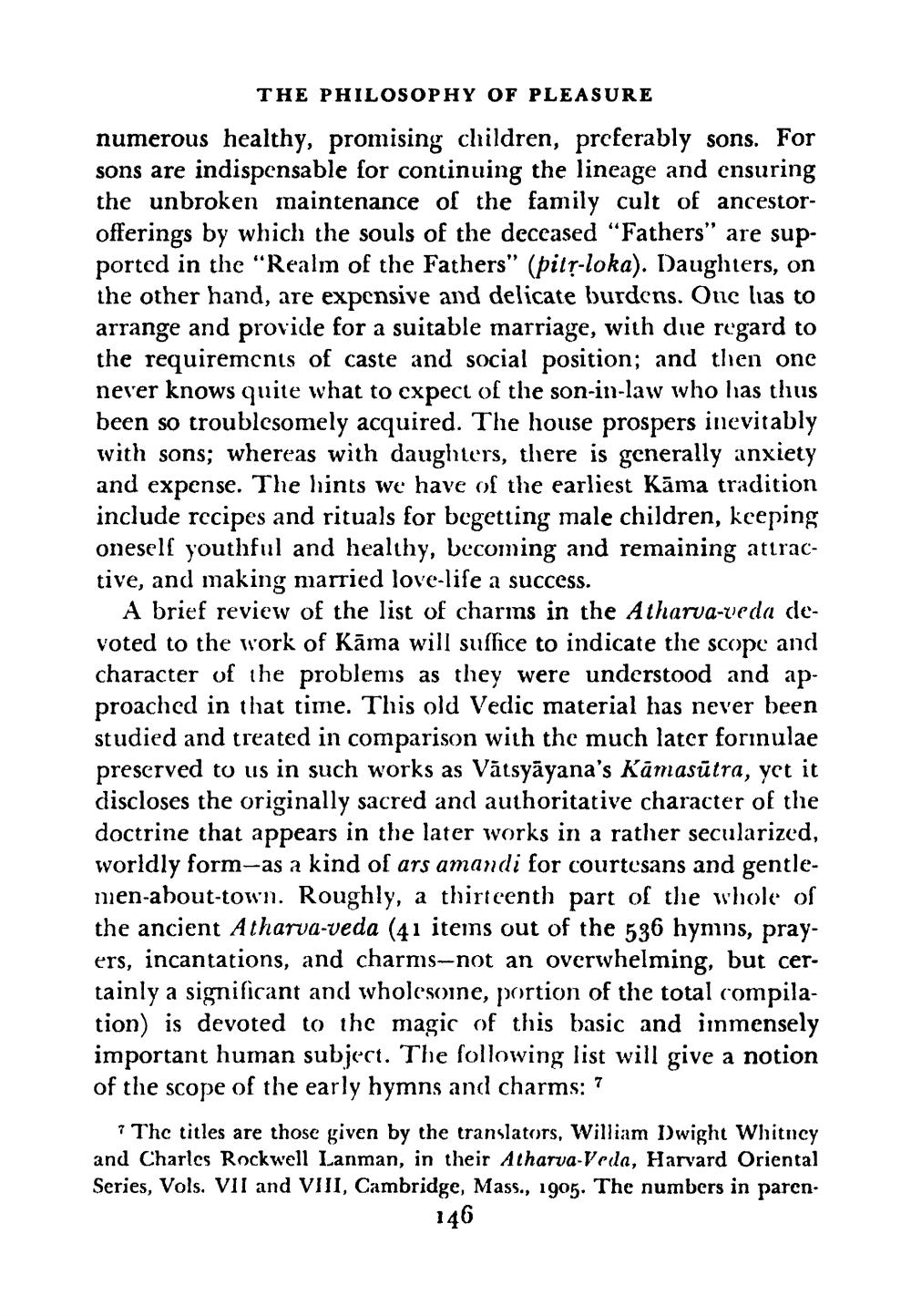________________
THE PHILOSOPHY OF PLEASURE numerous healthy, promising children, preferably sons. For sons are indispensable for continuing the lineage and ensuring the unbroken maintenance of the family cult of ancestorofferings by which the souls of the deceased “Fathers" are supported in the "Realm of the Fathers" (piir-loka). Daughters, on the other hand, are expensive and delicate burdens. One las to arrange and provide for a suitable marriage, with due regard to the requirements of caste and social position; and then one never knows quite what to expect of the son-in-law who lias thus been so troublesomely acquired. The house prospers inevitably with sons; whereas with daughters, there is generally anxiety and expense. The lints we have of the earliest Kāma tradition include recipes and rituals for begetting male children, keeping onesell youthful and healthy, becoming and remaining attractive, and making married love-lise a success.
A brief review of the list of charms in the Atharva-veda devoted to the work of Kāma will suffice to indicate the scope and character of the problems as they were understood and approached in that time. This old Vedic material has never been studied and treated in comparison with the much later forinulae preserved to us in such works as Vätsyāyana's Kámasútra, yet it discloses the originally sacred and authoritative character of the doctrine that appears in the later works in a rather secularized, worldly form-as a kind of ars amandi for courtesans and gentlenien-about-town. Roughly, a thirteenth part of the whole of the ancient Atharva-veda (41 items out of the 536 hymns, prayers, incantations, and charms-not an overwhelming, but certainly a significant and wholesoine, portion of the total compilation) is devoted to the magic of this basic and immensely important human subject. The following list will give a notion of the scope of the early hymns and charms: ?
7 The titles are those given by the translators, William Dwight Whitncy and Charles Rockwell Lanman, in their Atharva-Veda, Harvard Oriental Series, Vols. VII and VIII, Cambridge, Mass., 1905. The numbers in parcn.
146




